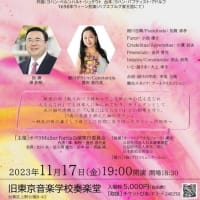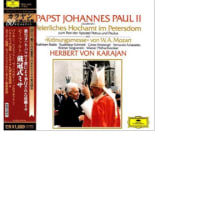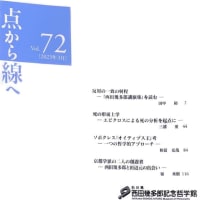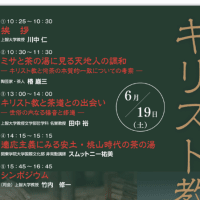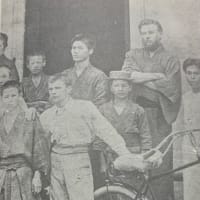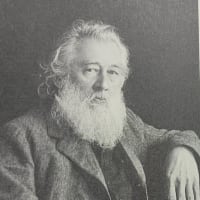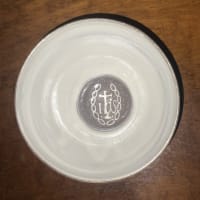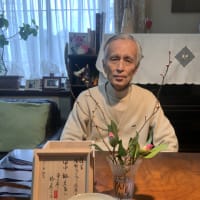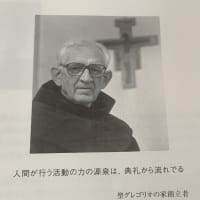The Philosophy of Nothingness and Hayathology
Notes for a public lecture at Claremont School of Theology, May 22 2007
1 The Standpoint of Hayathology (歴程の神学)
The theme of my lecture today is the philosophy of nothingness and process theology. The title may suggest a kind of comparison with two schools of philosophy and theology, pointing both similarities and differences between them, but my intention is, in fact, not a comparison from the objective, value-free standpoint, but from my own perspective of process theology, from the perspective of what I call Hayathology.
This is not my first time of speaking about Hayathology to American audience. I read a paper on “Hayathology” in the second International Whitehead Conference held in Nanzan University in Japan in 1984.
At the Nanzan conference I met Charles Hartshorne, and other eminent process theologians in America and Europe. I remember that Charles Hartshorne gave a sympathetic comment on my paper, though I did not know much about his neo-classical theism at that time, and had developed my own idea of Hayathology independently of the main stream of process theology in America.
My encounter with Whitehead was not so much through process theologians as through Whitehead’s works themselves.
After the Nanzan Conference, I was invited by Prof. Cobb to Claremont to attend another conference on Whitehead’s theory of relativity. That was the beginning of my affiliation with Process Center, and also the beginning of my participation in the Buddhist-Christian Dialogue initiated by Dr. Tokiyuki Nobuhara, who planed to organize a session in AAR for the purpose of a philosophical Dialogue between Whitehead and Nishida.
This session was realized in 1985 as “Process Thought and Nishida School of Buddhist Philosophy”. The program of this session attracted me very much because I thought of Nishida’s philosophy of “Nothingness” as one of the
most original Buddhist contributions to Christian theology. I went on with attending this session of AAR for several years and also attended the international conferences organized by the Society for Buddhist-Christian Dialogue.
I retain, indeed, the past encounter living in my memory, especially my first presentation of Hayathology in the Nagoya conference in 1984, and my later participation in the inter-religious dialogue between the East and the West. So allow me to return, firstly, to what Japanese people say sho-shin(初心), i.e. the original spirit, or the original purpose of my project. I hope it will be a
new occasion of what Whitehead calls “concrescence” which will materialize the “initial aim” of my project of hayathology in the near future.
You may well characterize my theology as a catholic process theology, but my understanding of catholicity is more universal than “Roman” Catholicism. I believe that the truly catholic faith does not know any distinction between Rome and Claremont, any distinction between the so-called Catholics and Protestants.
The apostle’s creed contains such an article as “credo in spiritum sanctum, sanctam ecclesiam catholicum” (I believe in the Holy Spirit, the holy catholic church). So every protestant belongs to the holy universal ecclesia, the body of Christ, when s/he believes in the apostle’s creed. The truly catholic faith will include Protestantism because we must always retrieve the “origin spirit” of
Christianity in order to advance forwards in the future.
I was baptized at the Roman Catholic Church in Japan, but my wife is a member of the radical protestant group which is known as “Non-Church Movement”, which Uchimura Kanzou (内村鑑三1861-1930) inaugurated. Sometimes I think that “Non-church” Christianity is also, in one sense, a genuine catholic ecclesia if we understand the true meaning of the adjective “non” of the non-church Christianity. It seems to me that Roman Catholic is new, protestant is old, and
Non-church is the oldest form of Christianity.
The Apostle’s Creed also contains “faith in the communion of Saints.” I believe in this article because I feel a living power of the deceased saints in my memory. My understanding of saints is, however, more universal than is usually understood. It includes not only saints of Christianity, but also saints who have exerted a great influence on the East-Asian Spirituality, including Daoist, Confusian, and Buddhist Saints whom we call “the Holy Person(聖人)”, “True man without any Rank(無位眞人)”, “the Awakend person(i.e. Buddha 覺者=仏陀)” according to so many various religious traditions. I have personally learned very much from these saints of East-Asia, and their words and acts seem to me something like an Old Testament in the East-Asia, which God has provided for us Eastern people as a precious spiritual legacy of the past.
Many people say that that spiritual tradition of Eastern saints died a virtual death in the modernized Asia. It may have been caused by the secularizing powers of “modernization”, or by the industrial and Cultural Revolution of the East Asian countries from the pressure of Imperialistic Dominating Powers. Whether the spiritual traditions of East-Asia will retrieve the past power in a renewed form or not, I don’t know. But I believe and hope that the Renaissance of Eastern Spirituality will certainly occur in the East-Asian countries including China, Korea, and Japan.
Personally I really experienced the beginning of such Renaissance in the fifth international Process Conference held in 2002 at Beijing Normal University. I met many Chinese scholars including Prof. Shih-Chuan Chen(程石泉). As one of my books on Whitehead had been translated into Chinese, he knew me through this book, and he gave me his own commentaries on Yi Ching (易經). Yi Ching was written about 3000 years ago, and has been considered one of the five sacred
texts the classical Chinese civilization. I learned from Shih-Chuan Chen that his teacher Thome Fang(方東美), translating the title of Yi Ching as “the Book of Creativity”, reinterpreted the natural philosophy contained in Yi ching in the categories of process philosophy.
Five years later I also witnessed the similar revival of the great tradition of classical Chinese civilization in the international conference held in Fu Jin Catholic University(輔仁天主教大學) in Taiwan held on Mach this year.
After having attended two Conferences in China, I began to recognize more than the past the importance between the cultural dialogue or encounter between the West and the East.
I have appreciated the Eastern tradition of spirituality very much, but at the same time I must confess that I find myself unsatisfied with the mere legacy of the past.
Although my theoretical standpoint is Catholicism, i.e. Universalism, which extends over the wall of Christendom, I always find that the locus of my religious commitments is, after all, fundamentally the Biblical tradition. The inter-religious dialogue always helps me to understand the Bible itself from a renewed perspective.
My respect of the Biblical tradition may be one of the reasons why I am dissatisfied with such process theologians who want to define process theology as a “naturalistic” theology. Personally I believe in the reality of the supernatural, and hold in high esteem the traditional formula of confessional faith, especially that of Thomas Aquinas, “grace never abolishes nature, but makes it complete.” The opposition between naturalism and super-naturalism seems to me based on an old
mistaken idea of substance.
I believe that true naturalism is always self-transcending whereas true supernaturalism is always self-trans-de-cending. That is one of my themes today.
The Western Christian theology, in my opinion, has not been accustomed to the non-substantial, non-dualistic, non-monistic, relational modes of thinking. Neither has it been accustomed to the way of “Nothingness” which had deep meaning in the East-Asian spirituality signified with such words as Non-Ego, No-Mind, Self-Emptying Love or what Mahayana Buddhists call Great Compassion(Maha Karuna).
Before explaining the spiritual “Way” of Nothingness, I would like to characterize my own standpoint of Hayathology in this way.










